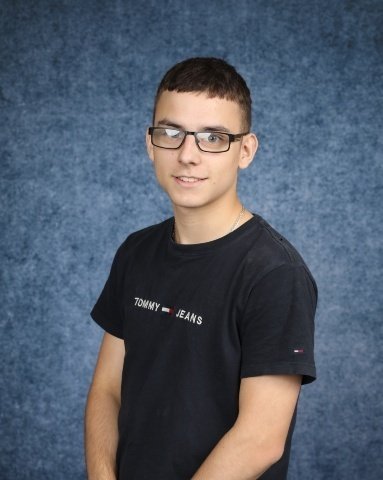Welcome to Year 3
What Year 3 are learning about this half term?
Spring 2
Our key Historical enquiry question is: How did life in Britain change throughout the Bronze and the Iron Age?
In our History lessons, we will learn what life was like in the Bronze Age and Iron Age and research facts about the Beaker people and Druids.
In English, our core text for this half term is: The Nothing to See Here Hotel by Steven Butler
Here are the independent writing outcomes we will cover:
Writing to Entertain: Character Description -Granny Regurgita
Writing to Entertain: Diary entry
Writing to Entertain: Limerick
Writing to Entertain: Suspense Chapter
In Science, our unit is Light. Our key enquiry question is: How can we change the size of a shadow?
In Design and Technology, our unit is Constructing a Castle
In French, our unit is French playground games - numbers, time and age.
In Music, we are learning to play the ukulele
In RE, our unit is How do the five pillars help Muslims to lead a good life?
In PE, our unit is Outdoor and Adventurous
In Computing, our unit is Google - Email
In RHE, our unit is Families and Committed Relationships
Our previous learning
Spring 1
Our key Geographical enquiry question is : Are volcanoes and mountains linked?
In our Geography lessons, we will learn about the structure of the Earth and how volcanoes and mountains are formed.
In English, our core texts for this half term are:
Escape from Pompeii by Christina Balit
Mountains - Dazzling Geographic Journey by Rebecca Khan
Mountains of the World by Dieter Braun
World of Wonder Mountains by Charlotte Guillain
Independent writing outcomes:
Writing to Entertain: Setting description - Pompeii
Writing to Inform: Report - Eruption of Pompeii
Writing to Entertain: Volcano Poetry
In Science, our unit is Rocks. Our key enquiry question is: What types of rock are there?
In Art, our unit is Chromatic. Our key question is: What is illustration?
We will also create volcano art inspired by Andy Warhol's painting of Mount Vesuvius
In French, our unit is French playground games - numbers, time and age.
In Music, our unit is Developing singing techniques
We will also continue to learn and play the Ukulele with Mrs Morrison.
In RE, our unit is How do people express spirituality?
In Computing, our unit is Google - Email
In RHE, our unit is Caring and responsibility.
In PE, our unit is Gymnastics.
Autumn 2
|
In English, we will complete our Place Value of Punctuation and Grammar unit, concentrating on different nouns, verbs and clauses to create accurate sentence structure. For our class text, we will be reading, 'The Boy Who Grew Dragons,' By Andy Shepherd.
Our key historical enquiry question is: How did life progress throughout the Stone Age? In our history lessons, we will learn how life progressed throughout the Stone Age across the three different eras.
In Maths, we will learn addition and subtraction. In the unit, we will develop our understanding of the key skills of formal addition and subtraction through place value, checking strategies and mental methods.
In Science, our unit is Animals, including Humans. Our key enquiry question is: Are all skeletons the same?
In Art, our unit is Painting with mixed media: Prehistoric Art.
In Computing, our unit is Programming - Scratch
In French, our unit is French adjectives for shape, colour and size.
In RE, we will continue our unit on How do Jews remember God’s convent Abraham and Moses?
In Music, we will continue to learn to play the Ukulele with Mrs Morrison.
In PE, our unit is Dance
In RHE, our unit is Similarities and differences
|
Autumn 1
In our first half term, our Geographical enquiry question is: What physical features make Britain a good place to settle?
In our Geography lessons, we will identify the counties and regions of the UK, research how land is used in different settlements, and identify human and physical features on a map.
In English, we will complete a Place Value of Punctuation and Grammar unit concentrating on different nouns, verbs, and clauses to create accurate sentence structure.
For our class text, we will be reading, 'The Iron Man' by Ted Hughes.
In Maths, we will learn about the Place Value of numbers up to 1000, which includes rounding, ordering, comparing, and representing numbers in different ways.
In Science, our unit is Forces and Magnets. Our key enquiry question is: Are all materials magnetic?
In Art, our unit is Monochromatic, we will learn how artists draw faces.
In PE, our first unit is Invasion Games
In Music, we will learn to play the Ukulele with Mrs Morrison.
In RHE, our unit is Healthy and Happy Friendships. In the unit, we will learn what the different qualities of a healthy, happy friendship are.
In RE, our unit is How do Jew remember God’s convent Abraham and Moses?
In French, our unit is French Greetings. In the unit, we will look carefully at the speaker and respond confidently with the appropriate gesture and phrase.
In Computing, our unit is Networks and the Internet. We will also learn how to stay safe online.
Our Class Library
Below are the core texts and literature we will be using in Year 3 to support the delivery of our curriculum.

Meet the staff...
Mrs Whittem (class teacher)
Miss Rachel (teaching assistant)
Mr Parker
Teaching and Learning Apprentice
Ferney Lee Road, Todmorden,
Lancs, OL14 5NR
01706 254848
admin@ferneylee.calderdale.sch.uk








































